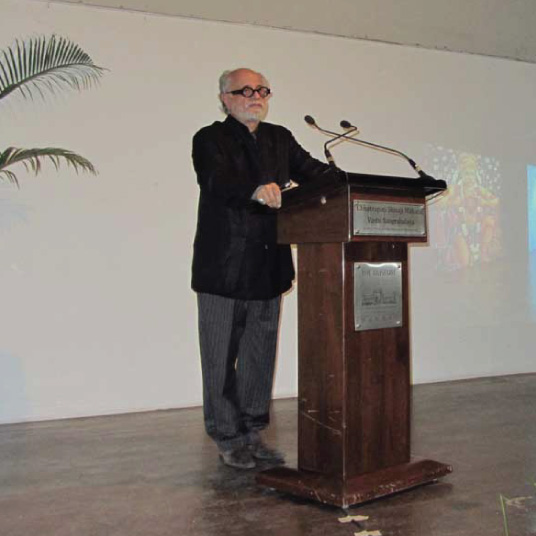
Dr. Homi Bhabha, Anne F. Rothenberg Professor of the Humanities Harvard University, is one of the most distinguished cultural theorists of the postcolonial and diasporic experience, rethinking questions of identity, social agency and national affiliation. He is the author of numerous works exploring postcolonial theory, cultural change and power, and cosmopolitanism, among other themes.
He has more recently examined the works of artists like Zarina Hashmi and Anish Kapoor, looking at moments of displacement and complexities that arise in aligning the position of the refugee. His lecture considered these various positions and the art that has evolved in these contexts.

Dr. Homi Bhabha is the Anne F. Rothenberg Professor of the Humanities in the Department of English, the Director of the Mahindra Humanities Center and the Senior Advisor on the Humanities to the President and Provost at Harvard University. Bhabha is one of the most distinguished cultural theorists of the postcolonial and diasporic experience and has developed a number of the field’s neologisms and key concepts, such as hybridity, mimicry, ambivalence and mimicry. According to Bhabha’s theory, such terms describe ways in which colonized people have resisted the power of the colonizer. He is the author of numerous works exploring postcolonial theory, cultural change and power, and cosmopolitanism, among other themes.
In 2012, he received the Padma Bhushan award in the field of literature and education from the Government of India.